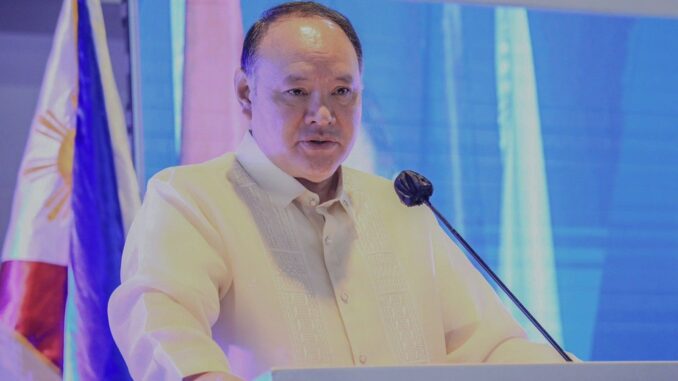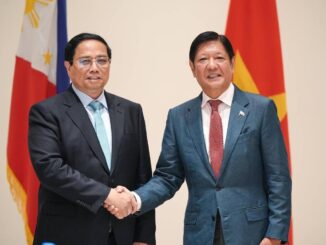
MANILA, Philippines — Defense Secretary Gilbert Teodoro questioned China’s sincerity in discussing the long-delayed South China Sea code of conduct on Monday, October 14, saying that Beijing adheres to its position even as it seeks dialogue with other nations.
Teodoro said China’s statement where it expressed willingness to engage in dialogue “based on historical facts” raises doubts about the sincerity of those talks.
“If they are committed to dialogue, it should be believable,” Teodoro said in an ambush interview on Monday.
“They have another colatilla saying that they are committed based on historical facts, what kind of dialogue is that? It is just a monologue that only they believe,” he added.
President Ferdinand Marcos Jr. has approved a possible “good faith discussion” with Beijing over the regional code of conduct, which will bind all South China Sea claimant states to a set of rules aimed at maintaining peace in the disputed waters.
But Teodoro said this is unlikely to take shape soon. “Right now, honestly speaking, I do not see that,” he added.
“If it is a perpetuation of what they have already done, then it’s hard,” the defense secretary said.
Talks of a regional code of conduct between the Association of Southeast Asian Nations (ASEAN) have taken place for over two decades. It was only in 2018 that ASEAN and China agreed to a draft negotiating text that served as the basis for the code of conduct itself.
Progress on the code of conduct has been slow, with China’s demands on the final wording seen as the main obstacle.
In November 2023, the Philippines attempted to pressure China by proposing a separate code of conduct with Vietnam and Malaysia. In response, Chinese Foreign Ministry spokesperson Mao Ning warned that “any departure from the Declaration on the Conduct of Parties in the South China Sea framework and its spirit will be null and void.”
Last week, Beijing responded to Marcos’ statements at the ASEAN summit about China’s aggression in the disputed waters, saying it settles maritime differences through dialogue based on “historical facts and international law.”
Marcos during the summit called on other Southeast Asian leaders to fast-track the code of conduct, saying key aspects such as geographic scope and its legal nature have yet to be decided upon.





Be the first to comment